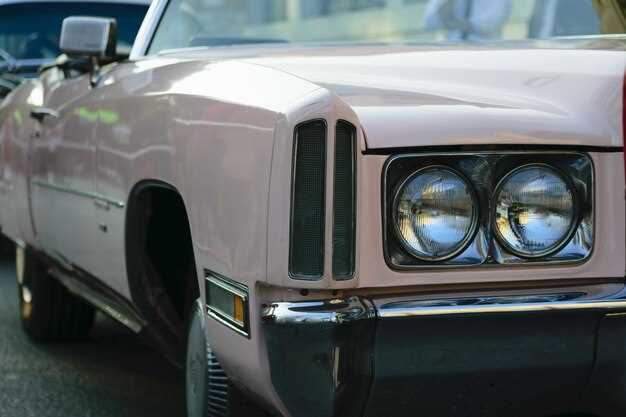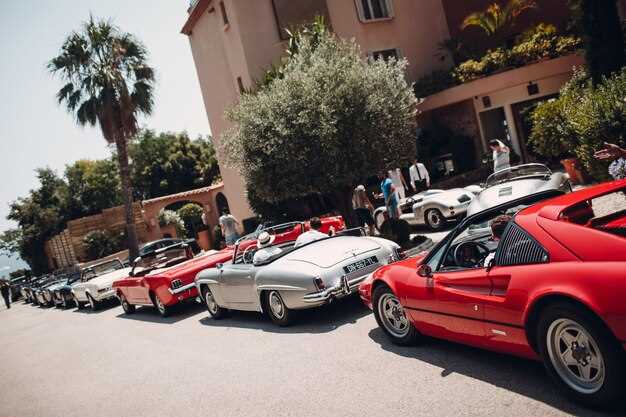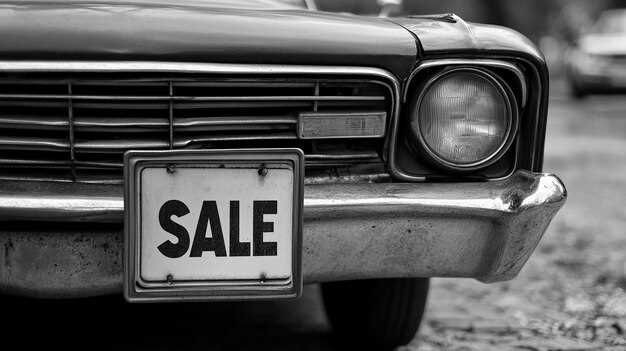
For classic car enthusiasts, the thrill of the auction is unlike any other experience. The atmosphere is charged with excitement as collectors and admirers gather to bid on some of the most sought-after cars in automotive history. Exploring auction houses that specialize in classic cars can reveal hidden gems and provide an opportunity to acquire a piece of history that may never come again.
In the realm of classic car auctions, certain houses have established themselves as leaders, offering not only outstanding vehicles but also a wealth of expertise and resources for buyers. These auction houses carefully curate their offerings, ensuring that each classic car meets high standards of quality and originality. Whether you are a seasoned collector or a newcomer to the world of vintage automobiles, knowing where to focus your attention can be crucial for finding your dream car.
This article will explore the must-follow classic car auction houses, highlighting their unique attributes, reputation within the community, and the types of vehicles they typically feature. By familiarizing yourself with these key players in the auction scene, you can enhance your chances of finding and acquiring that perfect addition to your classic car collection.
Top Auction Houses Specializing in Classic Cars

For classic car enthusiasts, auction houses are essential venues for acquiring rare vehicles and engaging with the automotive community. Below is a list of renowned auction houses that focus on classic cars, each offering unique features and specialties.
- RM Sotheby’s
- Founded in 1991, RM Sotheby’s has established itself as a leader in the classic car auction market.
- It features a diverse range of vehicles, from pre-war classics to contemporary collectibles.
- Regular international events attract serious bidders and collectors.
- Gooding & Co.
- Known for its high-quality auctions and exceptional standards, Gooding & Co. has a stellar reputation.
- Their auctions often feature rare models with robust provenance.
- The company is recognized for achieving record-breaking sales in the classic car sector.
- Bonhams
- Bonhams boasts over 200 years of auction experience, with a segment dedicated to classic and collector cars.
- They hold prestigious events worldwide, attracting a global audience.
- Notable for their diverse lots, from sports cars to vintage automobiles.
- Create Auctions
- Create Auctions emphasizes a strong online presence, catering to a younger demographic of collectors.
- The platform simplifies the auction process with user-friendly technology.
- They specialize in modern classics and emerging collectible vehicles.
- Mecum Auctions
- Mecum is one of the largest classic car auction houses in the United States.
- They are known for their extensive lineup of muscle cars and sportscars from various eras.
- Their events are marked by high energy and competitive bidding.
These auction houses are pivotal in the classic car market, each offering an avenue for enthusiasts to engage in their passion. From high-profile sales to online bidding, they cater to a wide range of preferences and budgets. Whether you’re a seasoned collector or someone looking to enter the classic car world, these auction houses are essential to follow.
Understanding Auction Processes for Classic Car Buyers
Participating in classic car auctions requires a clear understanding of the auction process to make informed decisions. Classic car buyers should familiarize themselves with several key stages of the auction, including registration, preview, bidding, and post-auction procedures.
Initially, potential buyers must register with the auction house. This often involves providing personal information and potentially a deposit to demonstrate seriousness. Registration can vary among auction houses, so it’s crucial to read instructions carefully to avoid any last-minute issues.
Once registered, buyers can participate in the preview phase, where they can inspect the cars on offer. This stage is essential, as it allows buyers to assess the condition, history, and authenticity of the classic vehicles they are interested in. Obtaining thorough documentation and conducting independent appraisals may also be beneficial.
The bidding process is where potential buyers can express their interest in cars. It’s vital to set a budget beforehand and stick to it, as emotions can run high during auctions. Buyers should be aware of the increments in which bids are raised and understand any fees associated with the final sale price, such as buyer’s premiums charged by auction houses.
After the hammer falls, the successful buyer must finalize the sale, which includes payment and arranging for transportation. Familiarizing oneself with the terms and conditions of the auction house regarding payment methods, timelines, and ownership transfer is essential to ensure a smooth transaction.
Ultimately, understanding the auction process not only helps buyers navigate classic car purchases with confidence but also enhances their overall experience in this captivating market.
How to Evaluate Classic Cars at Auctions

Evaluating classic cars at auctions requires a keen eye and a structured approach. The first step is to research the auction houses and understand their reputation in the classic car community. Renowned auction houses often provide detailed descriptions and histories of the cars, which should be thoroughly examined.
Next, assess the car’s condition by inspecting its exterior, interior, and mechanical components. Look for signs of rust, repainting, or aftermarket modifications that might affect its value. Make sure to check the chassis and undercarriage, as hidden issues can significantly impact performance and resale potential.
Verify the car’s documentation, including its title, service history, and any restoration records. Authenticity is crucial, especially for cars with significant historical value. Confirming the vehicle identification number (VIN) against official records will help ensure you’re purchasing a legitimate classic.
Consider conducting a market analysis by reviewing recent auction results for similar models. This will provide a benchmark for understanding the car’s estimated value and bidding strategies. Familiarize yourself with the auction process, as understanding reserve prices and bidding increments is essential for effective participation.
Lastly, engage with experts or fellow enthusiasts at the auction. Their insights can offer valuable perspectives on the cars being evaluated. Attending previews and asking questions about specific vehicles will equip you with the knowledge needed to make informed decisions.

